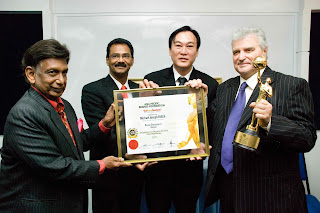As a result of our placement scheme at the Royal Brompton Hospital, the LCCH were invited to speak at the Pulmonary Hypertension Association UK’s annual conference held at the Hilton Hotel Manchester in October 2010. This proved to be a very inspirational experience as we met many people living with this debilitating condition as well as the friends, family and medical personnel who look after them. A consistent concern kept being raised as we talked to people during the conference, and that was “who looks after the carers?” A very vocal cohort of conference attendees kept highlighting this often overlooked aspect of care, bringing into focus the problems that carers face when living with and caring for someone with pulmonary hypertension (PH). Despite the love with which care is given, the carer also has emotional issues that need to be addressed. Several attendees talked of the strain that being a carer places on relationships, their ability to sleep (as they are constantly listening out for their partners breathing) and their levels of stress in general.
 |
| The Hilton Hotel Manchester |
The needs of PH patients were very much highlighted during the two talks we presented introducing hypnosis. The need to be able to talk to someone who was not a family member and who had time to listen was a very important aspect for many with PH. A discussion on the importance of holding a positive outlook despite the severity of the condition focussed attention on the need for schemes such as ours that gives PH patients the opportunity to have access to professionals who can help with coping with symptoms, setting goals, building the ability to focus on the present with positivity, whilst dealing with issues of mortality should they arise.
During two sessions in the afternoon, Peter Mabbutt gave a brief overview of hypnosis and hypnotherapy that was followed by Thomas van Berckel who explained the aims and objectives of the placement scheme. Jana Stanton also had the opportunity to share her experience as a clinical hypnotherapist working with PH patients, which allowed for some very positive Q&A at the end of each session.
 |
| Jana and Thomas |
The day was very successful and has left us with the potential to strengthen ties with the Pulmonary Hypertension Association UK and so open up further doors of opportunity to help improve patient care whilst at the same time creating an avenue of care for the carers.



